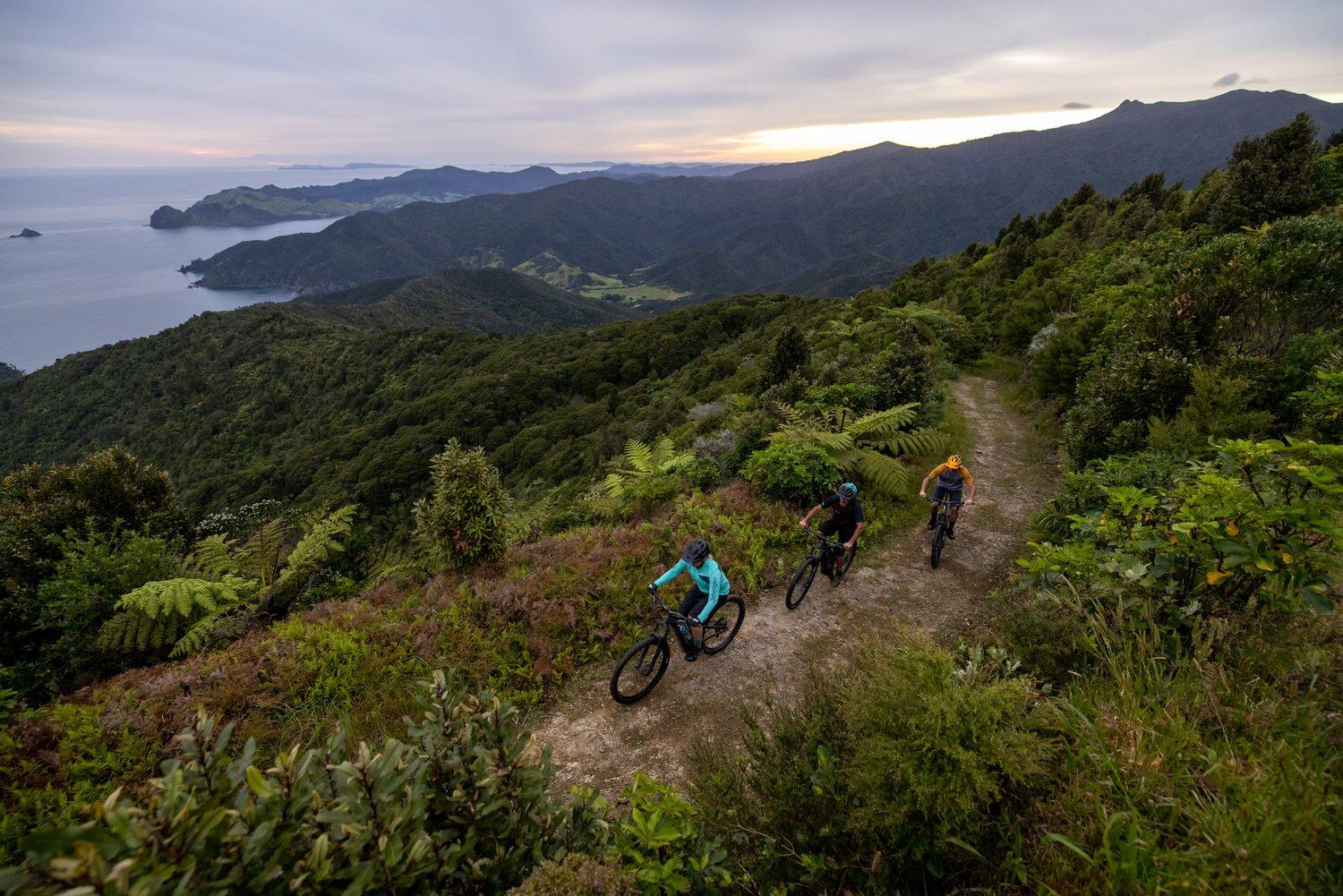
MASTERPLAN SOUGHT FOR COROMANDEL TRACKS AND TRAILS
A masterplan for the development of Coromandel tracks and trails has been tabled to guide development and maintenance.
The Coromandel Tracks and Trails Forum has been formed to come up with a plan for trail development and maintenance.
The Thames-Coromandel District Council (TCDC) has brought together key community groups and local stakeholders to build collaboration on the maintenance and development of the walking and cycling trails ecosystem across the district.
Thames Mountain Biking Club, Whanagamatā Mountain Biking Club, Coromandel Bike Park, Kauaeranga Tramping Club, Destination Hauraki Coromandel, industry professionals, event managers, Eastern Waikato Road Safety cycle instructors, Maratoto Catchment Group, landowners and individuals with an interest in tracks and trails attended the first meeting.
The forum discussed the current state and future of regional trails, how to foster community alignment and start developing a shared action plan to address priorities.
There was agreement that a master plan to guide trail development and maintenance was needed for the district.
A spokesman for the council said they were seeking community groups to “step up and collaborate in order to have diverse representation across trail user groups, landowners, industry professionals, iwi, local and regional government”.
The announcement comes off the back of the Hauraki-Coromandel Recreational Biking Strategy, endorsed in 2023, following community engagement, which showed high levels of support and enthusiasm towards its goals and vision.
The strategy was initially developed by Destination Hauraki-Coromandel, to understand how mountain biking and cycling experiences in the Coromandel could be improved and developed.
The masterplan would serve as a foundation to guide effective and sustainable development and maintenance of the district’s trail infrastructure offering numerous benefits for communities and the environment.
“A masterplan would align the actions of the various players in the sector in a coordinated fashion to achieve results that benefit the entire district; it would identify and recognise the range of views and values that different stakeholders hold, compare the possible impact on trail values, and define and consider the relative importance of the impact on different trail values,” the spokesman said.
“Trail values are the criteria and values associated with a specific area, such as environmental aspects [including] biodiversity, habitats, landscape and amenity; social considerations such as cultural heritage and local sense of place, educational opportunities; economic values such as raw materials, public water resources, tourism use, management cost, liability considerations.
“These values need to be determined in order to identify what makes tracks and trails sustainable in the region.”
It was agreed the next step would be creating a governance structure and working groups for the different workstreams.
The groups would be reaching out for more input as the plan moved forward.
The spokesman said the council’s economic development team facilitated the forum, with mountaineer, cyclist and trail enthusiast Mark Inglis providing the keynote speech.
Inglis was the first double amputee to have reached the summit of Mt Everest and is a champion of accessibility to trails.
While there was no council funding for track and trail development beyond what existed on council reserves, the economic development team was working to bring elements of the community together to help foster track development, the spokesman said.
“The benefits are tangible; enhanced tourism offerings, improved community and health outcomes, economic diversification and job growth.”
Timing would be dependent on whatever funding can be secured and the commitment from trail champions within the community to collaborate and drive the governance group.
In conjunction with the trails collective, the council had developed a resource library for trail builders or community groups.
A survey was undertaken in 2023.
Overall, the majority of feedback was positive and constructive, showing substantial community support for, and interest in, the draft Hauraki-Coromandel Biking Strategy.
The successful implementation of the strategy would require collaboration, efficient governance, community engagement and strategic planning.
- 564 survey responses were recorded.
- 89% of respondents supported the strategy’s overall vision.
- 88% supported the strategy’s wellbeing goals.
- 65% of non-cycling locals supported the vision.
- 53% said they were more likely to visit new places within the region if trails were developed.
- 90% of respondents felt it was important to develop the trail network.